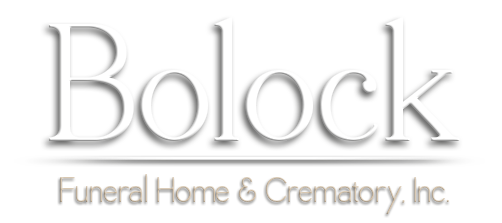Cremation Services
Cremation is an alternative to the burial process and it is chosen by many people because of religious beliefs, the desire to preserve the environment or it was requested by the person who died. Cremation is also a less expensive option in comparison to a burial. The remains are placed in a container that is combustible and placed in a special furnace called a cremation chamber or a crematory where through intense heat is reduced to bone fragments that are then crushed and pulverized to resemble course sand. The cremated remains of an average adult body will weigh about 7-8 pounds. Cremation is not an alternative to a funeral, but rather an alternative to burial or other forms of disposition.
Some religions welcome cremation while others forbid it. The Catholic Church had banned cremation up until 1963, and burial remains the preferred form of disposition today. In other Christian denominations cremation was historically discouraged but nowadays it is more widely accepted. In eastern religions such as Hinduism, Jainism, Sikhism and Buddhism cremation is mandated, while in Islam it is strictly forbidden. Orthodox Jews also forbid cremation; other sects of Judaism support cremation, but burial remains the preferred option.
Cremation FAQ
What is Cremation?
Cremation is the process of reducing the human body to bone fragments using high heat and flame. Cremation is not the final disposition of the remains, nor is it a type of funeral service.
Who can authorize a cremation?
The simple answer is the Next of Kin. The harder question to answer may be, "Who is the Next of Kin"? In Pennsylvania, the next of kin, according to PA Title 20, are listed as follows: a living spouse who is legally married; if there is no living spouse then all adult children, if no adult children then all parents, if no parents then all siblings, if no siblings than all nieces and nephews.
The law is clear that for cremation, all next of kin of the same level need to be in agreement. The law also allows a person to name someone other than the next of kin to authorize for their cremation prior to their death. The document is called a "Statement of Contrary Intent" and in short this document is used to go above the next of kin as set forth in Title 20. How can this be helpful? In certain situations a person may want to name one of their children as the authorizing agent thereby streamlining the process. In other situations, a person may want to name a "partner" or "significant other" who is not covered as a next of kin and would be otherwise unable to provide authorization.
Is a casket needed for cremation?
No, a casket is not required. However, Pennsylvania require's an alternative container constructed of wood or cardboard.
Is embalming required prior to cremation?
No. An embalming however, may be required if the family chooses to have an open casketed public viewing prior to the cremation.
Can the body be viewed without embalming?
Yes, we allow immediate family members to briefly view the deceased prior to cremation. This is called an Identification Viewing and is limited to 5 people for 15 minutes.
Can the family witness the cremation?
Yes they can; our firm will allow family members to be present when the body is placed in the cremation chamber. Some religious groups even include this as part of their funeral custom.
Can an urn be brought into church?
Nearly all Protestant Churches allow for the urn to be present during the memorial service. Most Catholic Churches also allow the remains to be present during the Memorial Mass. It is encouraged that cremated remains be a part of a funeral as it provides a focal point for the service.
What can be done with the cremated remains?
While laws vary state by state, for the most part remains can be buried in a cemetery lot or a cremation garden, interred in a columbarium, kept at home or scattered.
How can I be sure I receive the correct remains?
As a reputable cremation provider, we have developed rigorous sets of operating policies and procedures in order to maximize the level of service and minimize the potential for human error. Since it is illegal to perform more than one cremation at a time, and the vast majority of crematories can only cremate one body at a time, it is next to impossible to receive the incorrect remains.
How long does the actual cremation take?
It all depends on the weight of the individual. For an average sized adult, cremation can take two to three hours at a normal operating temperature of between 1,000 and 2,000 degrees Fahrenheit.
What do the cremated remains look like?
Cremated remains resemble coarse sand and are whitish to light grey in color. The remains of an average sized adult usually weighs between 7 and 8 pounds.
Are all the cremated remains returned?
With the exception of minute and microscopic particles, which are impossible to remove from the cremation chamber and processing machine, all of the cremated remains are given back to the family.
Do I need an urn?
An urn is not required by law. However, an urn may be desired if there is to be a memorial service or if the remains are to be interred in a cemetery. If an urn is not purchased or provided by the family, the cremated remains will be returned in a temporary plastic container.
What is Project My Heart Your Heart?
Bolock Funeral Home & Crematory, Inc. is a proud participant of the University of Michigan Cardiovascular Center "Project My Heart Your Heart" Pacemaker Reutilization Program. Through FDA expressed approvals from six recipient country governements and clinical trials, pacemaker reuse is a safe and effective means of delivering healthcare to those in great need in undeserved nations.







